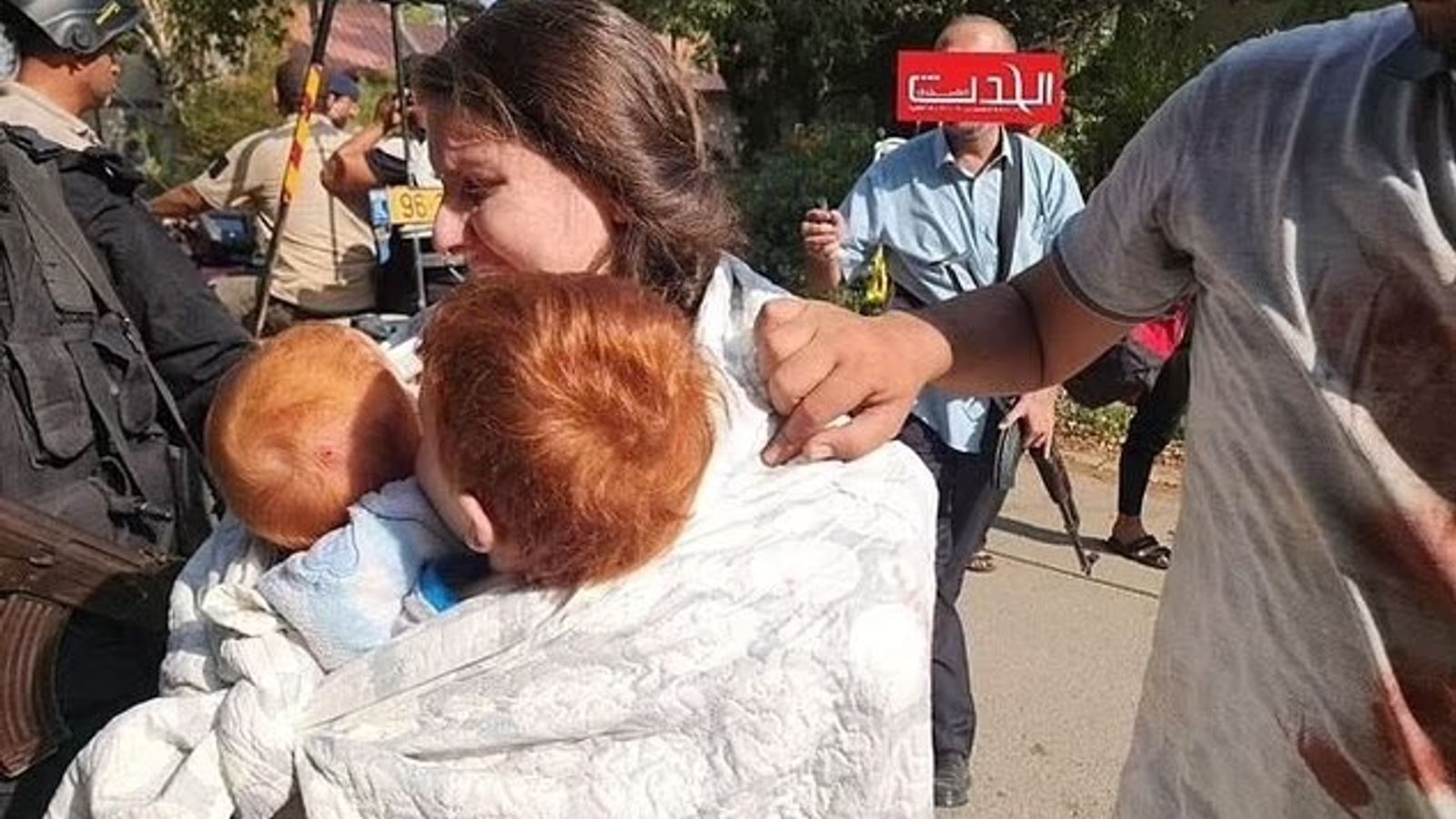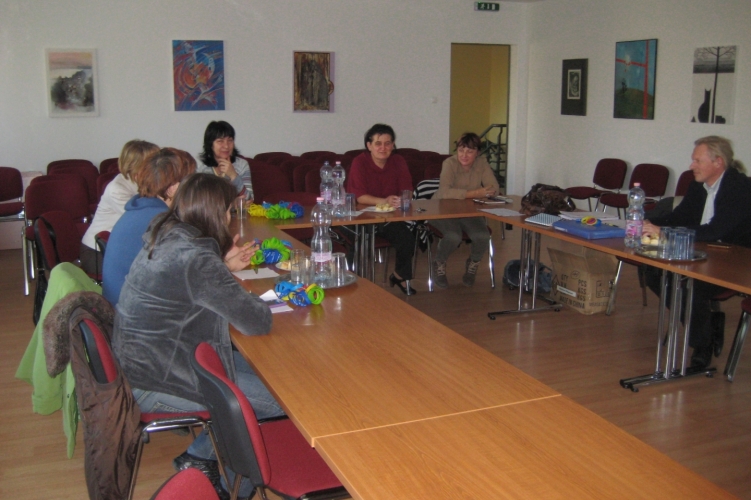Prolonged Captivity: The Plight Of Families With Hostages In Gaza

Table of Contents
The Psychological Impact of Prolonged Captivity on Families
The psychological toll of prolonged captivity on families in Gaza is profound and far-reaching. The constant fear for a loved one's safety, coupled with the lack of information and the agonizing wait for release, creates an environment ripe for mental health issues. Families grapple with intense anxiety, debilitating depression, and the long-term effects of post-traumatic stress disorder (PTSD). The grief process is often protracted and complicated, punctuated by fleeting moments of hope and crushing waves of despair.
The unrelenting uncertainty about the hostage's well-being is perhaps the most damaging aspect. Is the hostage safe? Are they being treated humanely? These questions gnaw at the families, eroding their mental health and straining relationships. Maintaining hope in the face of such adversity is a monumental task.
- Increased risk of mental health disorders, including anxiety, depression, and PTSD.
- Strain on family relationships, leading to conflict and breakdown.
- Difficulty functioning in daily life, impacting work, education, and social interactions.
- Significant financial burdens due to lost income, medical expenses, and the costs associated with seeking information and support.
Socioeconomic Hardships Faced by Families
The financial burden imposed by prolonged captivity is immense. Families often face significant expenses, including legal fees, travel costs to access information or aid organizations, and the loss of income due to the absence of a family member who may have been the primary breadwinner. Navigating bureaucratic systems, both local and international, to seek support and advocate for their loved ones adds another layer of complexity and hardship.
Furthermore, families may experience social stigma and isolation. The hostage situation can be a source of shame or embarrassment, leading to exclusion from social circles and a reluctance to share their struggles with others.
- Loss of employment and subsequent financial instability.
- Accumulation of debt due to mounting expenses.
- Limited access to social support networks, due to stigma and isolation.
- Discrimination and marginalization from wider society.
The Role of International Organizations and Governments
International organizations, such as the International Committee of the Red Cross (ICRC) and the United Nations, play a crucial role in mediating hostage releases and providing humanitarian assistance to affected families. They often act as neutral intermediaries, facilitating communication between conflicting parties and advocating for the humane treatment of hostages. Governments also have a significant role, offering diplomatic support, providing legal assistance, and applying pressure on relevant actors to secure the release of their citizens.
However, the effectiveness of current strategies is debatable. The complexities of the Gaza conflict often hinder progress, and improvements are needed to ensure quicker resolutions. Greater international collaboration, stronger diplomatic pressure, and a more robust framework for supporting families are essential.
- Negotiation efforts to secure the release of hostages.
- Provision of humanitarian aid, including food, medicine, and shelter.
- Legal advocacy to protect the rights of hostages and their families.
- Applying diplomatic pressure on relevant actors to expedite the release process and address the underlying conflict.
Advocacy and Support Networks for Families
Several organizations are dedicated to providing support and advocacy for families facing prolonged captivity. These groups offer vital resources, including psychological support, legal aid, and financial assistance. However, raising awareness about the plight of these families and expanding support networks is crucial.
Individuals and organizations can contribute in numerous ways:
- Participating in or organizing fundraising initiatives to provide financial assistance to affected families.
- Supporting or establishing psychological support services to address the mental health consequences of prolonged captivity.
- Providing legal aid to families navigating complex legal processes.
- Launching public awareness campaigns to shed light on this critical humanitarian issue.
Understanding and Addressing Prolonged Captivity in Gaza
The experience of prolonged captivity in Gaza is devastating, impacting families on psychological, socioeconomic, and political levels. Addressing this critical humanitarian issue requires a multi-pronged approach. International cooperation is paramount, along with effective advocacy from governments and international organizations. We must work together to ensure the safe and swift release of hostages and provide comprehensive support for the families they leave behind. Let's commit to ending prolonged captivity and building a future where such suffering is a thing of the past. Learn more about this critical issue and support organizations working to address prolonged captivity in Gaza by visiting [link to relevant organization 1], [link to relevant organization 2], and [link to relevant resource]. Let's work together to resolve the Gaza hostage crisis and bring families back together.

Featured Posts
-
 Elsbeth Season 2 Preview A Look At Episode 15 I See Murder
May 13, 2025
Elsbeth Season 2 Preview A Look At Episode 15 I See Murder
May 13, 2025 -
 40 C Heat Scorches Indore Cmho Issues Loo Alert
May 13, 2025
40 C Heat Scorches Indore Cmho Issues Loo Alert
May 13, 2025 -
 Lywnardw Dy Kapryw W Adryn Brwdy Gzynh Hay Asly Fylm Aywl Knywl
May 13, 2025
Lywnardw Dy Kapryw W Adryn Brwdy Gzynh Hay Asly Fylm Aywl Knywl
May 13, 2025 -
 Chto My Znaem O Grigorii Kostyuke Syne Tamary Kadyshevoy
May 13, 2025
Chto My Znaem O Grigorii Kostyuke Syne Tamary Kadyshevoy
May 13, 2025 -
 Athlitikes Metadoseis Parakoloythiste Tin Serie A Online
May 13, 2025
Athlitikes Metadoseis Parakoloythiste Tin Serie A Online
May 13, 2025
Latest Posts
-
 Leonardo Di Caprio Egy 30 Eves Harc A Drogok Ellen
May 13, 2025
Leonardo Di Caprio Egy 30 Eves Harc A Drogok Ellen
May 13, 2025 -
 Ali Larters Return To Landman Season 2 Revealed In New Bts Photos
May 13, 2025
Ali Larters Return To Landman Season 2 Revealed In New Bts Photos
May 13, 2025 -
 30 Evvel Ezelott Leonardo Di Caprio Doentese A Heroin Ellen
May 13, 2025
30 Evvel Ezelott Leonardo Di Caprio Doentese A Heroin Ellen
May 13, 2025 -
 Landman Season 2 Bts Photos Show Ali Larters Return
May 13, 2025
Landman Season 2 Bts Photos Show Ali Larters Return
May 13, 2025 -
 Leonardo Di Caprio Es A Heroinfueggoseg 30 Evnyi Kuezdelem
May 13, 2025
Leonardo Di Caprio Es A Heroinfueggoseg 30 Evnyi Kuezdelem
May 13, 2025
